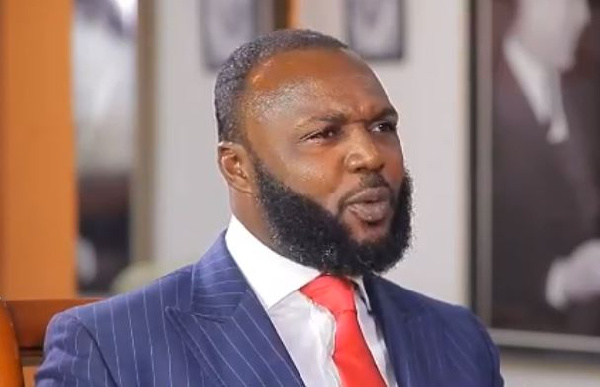Ato Essien convicted of misappropriation of Capital Bank liquidity fund

William Ato Essien, Chief Executive Officer of defunct Capital Bank, on Tuesday, shed tears as an Accra High Court re-took his plea to make effective a plea bargain agreement.
Essien pleaded guilty to various counts of conspiracy to steal, stealing, and money laundering.
The court, subsequently, convicted him on his own plea.
The court was presided over by Justice Eric Kyei Baffour, a Court of Appeal Judge, sitting with additional responsibility as a High Court Judge.
It accepted the agreement reached between Essien and the State, which binds him to refund GH¢90 million in three installments.
Essien has reportedly paid GH¢30 million already.
The Court also banned Essien from holding a key position in any financial institution.
Meanwhile, Mr Tetteh Nettey and the Reverend Dr Fitzgerald Odonkor who were standing trial with Ato Essien in the defunct Capital Bank case were acquitted and discharged by the Court.
They were the former managing director of the Bank, and Managing Director of MC Management Service, also owned by Essien, respectively.
The three were accused of misappropriating the GH¢620 million liquid fund extended to the Bank by the Central Bank in 2015 and 2016.
All three had earlier pleaded not guilty to 23 counts of criminality related to attempted stealing and stealing.
The court on December 1, adjourned the matter to today, December 13, for the prosecution and lawyers of the accused to address it on Section 35 of Act 459 of the Courts Act, which relates to restitution and reparation.
The court, in its ruling on the settlement terms, held that the law on restitution and reparation was not applicable in the instant case and found the agreement reached between the state and Essien complex and unacceptable.
The trial Judge, therefore, adjourned the matter for the state and Essien’s lawyers to address him properly on the terms of the settlement.
He explained that the issues of restitution and reparation could be considered before the trial commenced or during the trial.
The Court, therefore, questioned the basis for the restitution or reparation in the instant matter before it.
It noted that Essien had agreed to plead guilty to the offences and refund an amount of GH¢90 million he allegedly stole in the year 2015 and 2016
The court said Essien had already refunded GH¢30 million to the state.
However, the State in considering the settlement terms did not consider the value of the depreciated money over the years.
According to the Court, it was important for the state to consider the value of the money in relation to the current exchange rates.
The trial judge held that if the accused could refund the money without paying interest, that would amount to partial restitution and make committing crime attractive.
The agreement should not appear to have outwitted the State in the crime.
It noted that the money in question was for the depositors and shareholder of defunction Capital Bank although the Bank of Ghana was the complainant in the case.
Source: GNA
